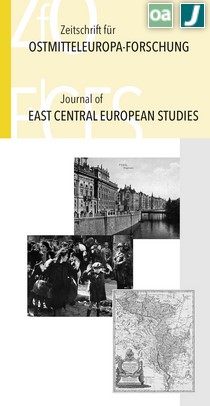How the “Richta Team” Was Born: The Scientific and Technological Revolution and Political Decision-making in Czechoslovak Reform Communism
How the “Richta Team” Was Born: The Scientific and Technological Revolution and Political Decision-making in Czechoslovak Reform Communism
Author(s): Vítězslav Sommer, Jiří HoppeSubject(s): National Economy, Economic history, Political history, Economic policy, Government/Political systems, Political economy, Post-War period (1950 - 1989), History of Communism
Published by: Verlag Herder-Institut
Keywords: State socialism; Czechoslovakia; Prague Spring; 1968; Scientific and Technological revolution; Raclovan Richta;
Summary/Abstract: The following article is a case study on the relationship between expertise and political decision-making in the ―Eastern Bloc.‖ It focuses on the attempt to reform state socialism, which took place in Czechoslovakia in the 1960s. This effort was linked to the extensive involvement of experts in the policy-making of the Communist Party of Czechoslovakia (CPCz). Using the example of the research on the ―Scientific and Technological Revolution‖ (STR), headed by philosopher Radovan Richta, this article examines the close ties between high politics and knowledge production in state socialism. This article analyzes the STR project from the perspective of the intellectual history of Reform Communism and situates the STR theory in a broader context of post-Stalinist political thought. In its second part this study examines how the STR research team was established. This institutional history shows that the STR project was not only the result of intellectual and political aspirations of reform-oriented intellectuals, but also emerged as a consequence of the attempt of the Party leadership to revitalize its central ideology apparat. The efforts to update the official ideology, in order to react to the demise of Stalinism and to promote new economic policies, resulted in the establishment of an intellectually innovative and internationally acclaimed research project, which provided a theoretical background for far-reaching reform policies of the Prague Spring era.
Journal: Zeitschrift für Ostmitteleuropa-Forschung
- Issue Year: 69/2020
- Issue No: 4
- Page Range: 495-518
- Page Count: 24
- Language: English

